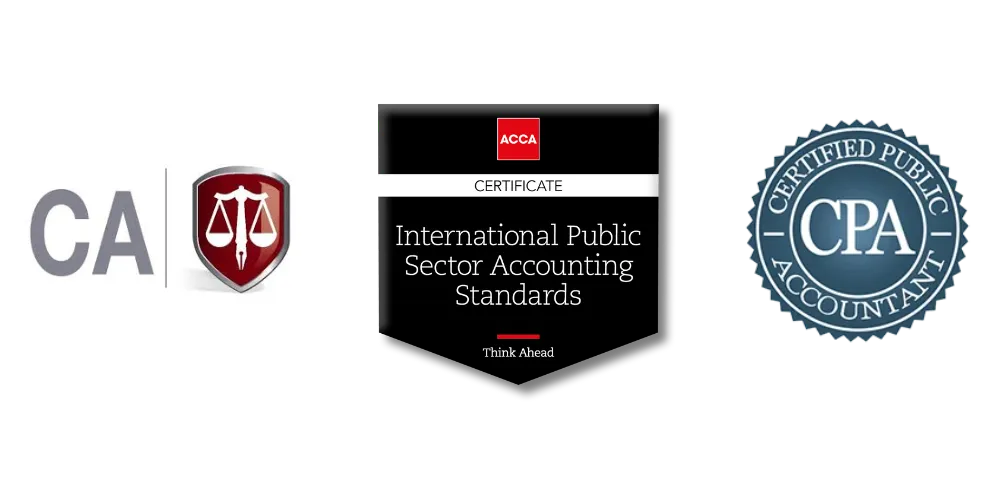If you’ve saved a meaningful amount for retirement — say, $500,000 or more — choosing the right financial advisor could be one of the most important decisions you make. A good advisor can help turn that savings into predictable income, lower your lifetime tax burden, and help you avoid the kinds of mistakes that quietly cost retirees hundreds of thousands of dollars.
But not all advisors are created equal. And not all of them work for you.
Here’s what you need to know before handing over your life savings — and what to ask before you do.

Start with One Simple Question: Are You a Fiduciary?
Most people are shocked to learn this: not all financial advisors are required to act in your best interest. Only those held to the fiduciary standard are legally obligated to put your needs first. Others may follow a suitability standard, which only requires that an investment be “appropriate” — not necessarily the best fit for you.
According to the U.S. Securities and Exchange Commission (SEC), fiduciaries must “eliminate or at least expose” conflicts of interest when providing investment advice.¹
Ask this question exactly:
“Are you a fiduciary at all times, and will you put that in writing?”
If the answer is no — move on.
Understand How They Get Paid (and Who Really Pays Them)
The way an advisor is compensated can influence the advice they give. And if you don’t know how they’re getting paid, you might be the one paying more than you think.
Advisors typically fall into one of three compensation models:
• Fee-only: You pay a flat fee, hourly rate, or a percentage of assets under management (AUM). No commissions or product-based incentives.
• Commission-based: They earn money from the products they sell (mutual funds, annuities, insurance).
• Fee-based: A combination of the two, which may introduce conflicts if not clearly disclosed.
The National Association of Personal Financial Advisors (NAPFA), a leading organization of fee-only fiduciary advisors, warns that commission-based compensation can lead to biased recommendations.²
Bottom line: Look for transparent, direct compensation with no hidden incentives.
Credentials Matter — But Communication Matters More
Meaningful credentials signal training, discipline, and ethical commitment. Look for:
• CFP® (Certified Financial Planner): Focus on retirement, taxes, insurance, and estate planning
• CFA® (Chartered Financial Analyst): Deep expertise in investment analysis and portfolio construction
• CPA/PFS (Personal Financial Specialist): For tax-focused planning
You can verify an advisor’s credentials — and check for any disciplinary history — using FINRA’s BrokerCheck (brokercheck.finra.org) or the SEC’s Advisor Info database (adviserinfo.sec.gov).³

But credentials alone aren’t enough. The best advisors explain things clearly and make you feel confident, not confused. If you leave meetings with more questions than answers, that’s a problem.
Watch Out for These Red Flags
Even experienced or well-reviewed advisors may present warning signs. These include:
• Pushing annuities or insurance products early in the relationship
• Avoiding direct answers about fees or commissions
• Emphasizing short-term returns over long-term planning
• Relying on canned pitches or templated solutions
According to a 2023 report by the Consumer Financial Protection Bureau (CFPB), many consumer complaints stem from vague fee disclosures and misaligned incentives in the financial advisory industry.⁴
If something feels “off” — it probably is.
Ask These 5 Questions Before Hiring
Use these questions to evaluate whether an advisor is truly a fit for your goals:
1. Are you a fiduciary at all times?
2. How do you get paid — and are there any commissions, incentives, or referral fees?
3. What services do you provide, and what’s excluded?
4. What type of clients do you typically work with?
5. Can I see a sample financial plan before committing?
The right advisor will welcome these questions. If they hesitate or get defensive, consider that a red flag.
What a Great Advisor Actually Does
A great advisor does more than manage your investments. They help you:
• Turn your savings into sustainable, tax-efficient income
• Minimize retirement taxes with tools like Roth conversions
• Coordinate estate planning, insurance, and Social Security timing
• Keep you disciplined during market volatility
• Adjust your plan as life evolves
In fact, Vanguard estimates that a skilled advisor can add roughly 3% in net returns annually through behavioral coaching, rebalancing, and tax-smart planning — a concept they refer to as “Advisor Alpha.”⁵
Final Thoughts
Hiring the right financial advisor isn’t about luck — it’s about asking the right questions, understanding the incentives at play, and choosing someone whose strategy is built around your best interests.
You don’t need someone who sounds smart. You need someone who listens, explains clearly, and puts your goals first.
Sources:
U.S. Securities and Exchange Commission (SEC). “Investment Advisers: What You Need to Know.” https://www.sec.gov/investor/pubs/invadvisers.htm
National Association of Personal Financial Advisors (NAPFA). “Why Fee-Only Matters.” https://www.napfa.org/why-fee-only
FINRA BrokerCheck. https://brokercheck.finra.org; SEC IAPD. https://adviserinfo.sec.gov
Consumer Financial Protection Bureau. “Common Financial Product Complaints.” https://www.consumerfinance.gov/data-research/consumer-complaints
Vanguard Research. “Putting a Value on Your Value: Quantifying Vanguard Advisor’s Alpha®.” https://advisors.vanguard.com
Editor’s Note: Investor’s Digest is an independent financial journalism platform. This article is for educational purposes only and does not constitute financial, legal, or tax advice. Always consult with a licensed fiduciary advisor or tax professional before making investment or withdrawal decisions.

Your Shortcut to Financial
Clarity
Terms Of Use | Privacy Policy
Quick Links
Connect With Us
*InvestorsDigest.org is an educational platform dedicated to financial literacy. This content is for educational purposes only and does not constitute financial, legal, or tax advice.
We are not a registered investment advisor, broker-dealer, or financial planner. No specific investment product, strategy, or advisor is being recommended. We do not offer or sell securities or investment advisory services. Any financial professionals you may be introduced to are independently licensed and regulated. Results mentioned are illustrative and not guaranteed. Your situation may vary.
Past performance does not guarantee future results. There is no guarantee that any investment strategy or account will be profitable or will not incur loss. Investors should consider the investment objectives, risks, charges and expenses that make up this investment strategy carefully before investing. Investing involves risk, including the possible loss of principal. Share price, principal value, and return on investments will vary, and you may have a gain or a loss when you sell your investment.
Investor's Digest does not promise or guarantee any income or particular result from your use of the information contained herein. Under no circumstances will Investor's Digest be liable for any loss or damage caused by your reliance on the information contained herein. It is your responsibility to evaluate any information, opinion, advice or other content contained. All Content on this site is information of a general nature and does not address the circumstances of any particular individual or entity. Nothing in the Site constitutes professional and/or financial advice, nor does any information on the Site constitute a comprehensive or complete statement of the matters discussed or the law relating thereto. Investor's Digest is not a fiduciary or registered investment advisor. You alone assume the sole responsibility of evaluating the merits and risks associated with the use of any information or other Content on the Site before making any decisions based on such information or other Content. In exchange for using this website (https://investorsdigest.org), you agree not to hold Investor's Digest, its affiliates or any third party service provider liable for any possible claim for damages arising from any decision you make based on information or other Content made available to you through the Site.
This site is not a part of the Facebook™ or Instagram™ website or Meta Platforms, Inc. Additionally, this site is NOT endorsed by Facebook™ or Instagram™ in any way. Facebook™ and Instagram™ are a trademark of Meta Platforms, Inc.
